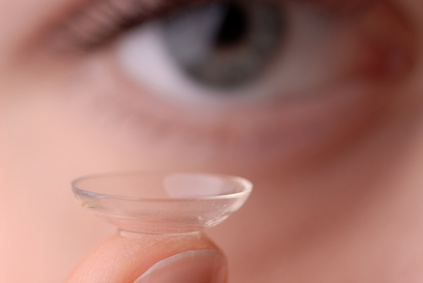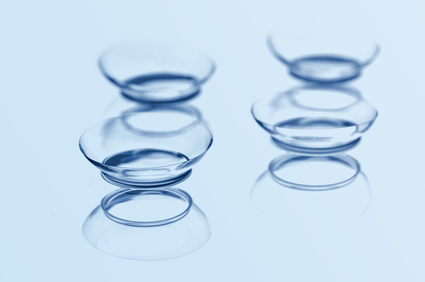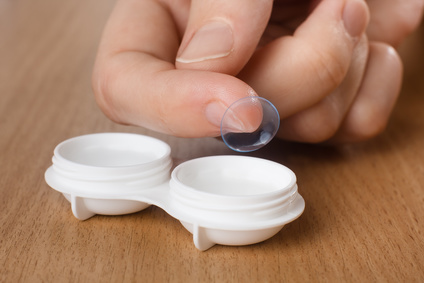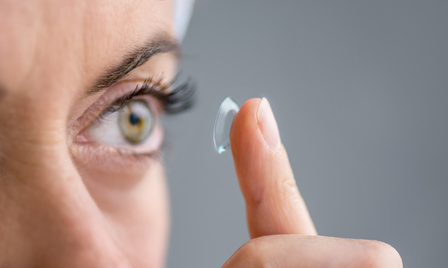When you’re selecting your new lenses, there are a few choices you need to consider. The most common types are either ‘soft’ or ‘hard’ contact lenses. We’ve put together a brief outline below to explain their differences.
Soft lenses are made of a flexible silicon hydrogel material, and are therefore extremely comfortable for extended wear. These types of lenses are available in daily, two-weekly or monthly varieties and must be stored in a special contact lens solution to prevent them from drying out.
By contrast, hard lenses keep their shape and so often last longer than soft lenses. They are more durable and more commonly available in longer lasting varieties rather than daily disposable options.
Daily Disposables
Daily disposables are single-use lenses that you remove and discard at the end of each day, and then apply a fresh pair of lenses to the eyes the next morning. Daily contact lenses are gaining in popularity among practitioners and consumers for their health and convenience benefits. Clear vision, great comfort and no cleaning required; daily disposables can be a convenient way to wear contact lenses.

Frequent Replacement
Contact lenses begin attracting deposits of proteins and lipids the moment they are put over your eye. Accumulated deposits, even with routine lens care, begin to erode the performance of your contact lenses and create a situation that presents a greater risk to your eye health. A specific replacement schedule helps to prevent problems before they might occur.
Planned replacement lenses generally have a higher water content and are thinner allowing more oxygen to reach the eye. On the downside they are less protein and therefore need to be replaced more frequently as they become dirty more easily.
Having completed a full assessment on your eyes, we will create a prescription for planned replacement lenses, and can offer you a couple of options:

Multifocal
Multifocal contact lenses are contact lenses with multiple prescriptions all in one lens.
Once we reach our mid-40s, presbyopia makes it difficult to focus on near objects. Reading glasses used to be the only option available to contact lens wearers who wanted to read a menu or do other everyday tasks that require good near vision. But today, a number of multifocal contact lens options are available to consider. Multifocal contact lenses can offer the best of both worlds: no glasses, along with good near and distance vision.
When you’re thinking about getting contact lenses and making other important eye care decisions, we will help you find the right options that will suit your lifestyle. We can also monitor the situation on a regular basis to make sure the choice was the right one.

Gas Permeable Lenses
Gas permeable contact lenses are another option for potential lens wearers. They are sometimes referred to as hard lenses or RGP (rigid gas permeable lenses).
Gas permeable contact lenses have been on the market for a lot longer than soft lenses, and though not as popular, they still have many benefits for specific types of contact lens wearers.
Unlike soft lenses they are more durable and can be worn for longer periods of time. They can be worn daily and replaced every six to twelve months.
If you decide to opt for contact lenses, our qualified members of staff will take you through the process of how to insert and remove them safely. You will also receive useful tips on how to care for your lenses so that they remain in a good condition – so they last for as long as possible.
We understand that many people do get very nervous about trying contact lenses for the first time because they are worried about having to place them directly onto their eyeball. They can take some time getting used to. But don’t worry, as the technique we will show you, this quickly becomes second nature and will cause no discomfort at all.
If you would like to make an appointment with one of our friendly optometrists, or would like to find out more about our services, please give us a call on 020 8207 1074 or use our online form to book an appointment.


